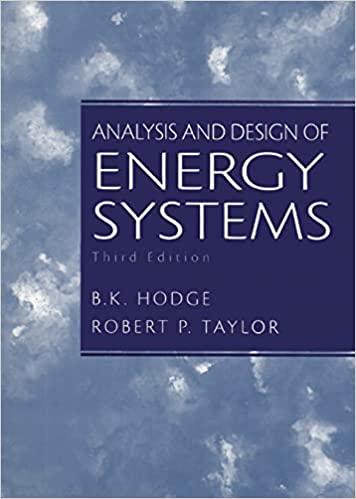47. A particular high-performance computer system has been functioning as an e-business server on the Web. This
Question:
47. A particular high-performance computer system has been functioning as an e-business server on the Web. This system supports $10,000 per hour in gross business volume. It has been estimated that the net profit per hour is $1,200. In other words, if the system goes down, the company will lose $1,200 every hour until repairs are made. Furthermore, any data on the damaged disk would be lost. Some of this data could be retrieved from the previous night’s backups, but the rest would be gone forever. Conceivably, a poorly timed disk crash could cost your company hundreds of thousands of dollars in immediate revenue loss, and untold thousands in permanent business loss.
The fact that this system is not using any type of RAID is disturbing to you.
Although your chief concern is data integrity and system availability, others in your group are obsessed with system performance. They feel that more revenue would be lost in the long run if the system slowed down after RAID is installed. They have stated specifically that a system with RAID performing at half the speed of the current system would result in gross revenue dollars per hour declining to $5,000 per hour.
In total, 80% of the system e-business activity involves a database transaction. The database transactions consist of 60% reads and 40% writes. On average, disk access time is 20ms.
The disks on this system are nearly full and are nearing the end of their expected lives, so new ones must be ordered soon. You feel that this is a good time to try to install RAID, even though you’ll need to buy extra disks. The disks that are suitable for your system cost $2,000 for each 10GB spindle. The average access time of these new disks is 15ms with an MTTF of 20,000 hours and an MTTR of 4 hours. You have projected that you will need 60GB of storage to accommodate the existing data as well as the expected data growth over the next 5 years. (All of the disks will be replaced.)
a) Are the people who are against adding RAID to the system correct in their assertion that 50%
slower disks will result in revenues declining to $5,000 per hour? Justify your answer.
b) What would be the average disk access time on your system if you decide to use RAID-1?
c) What would be the average disk access time on your system using a RAID-5 array with two sets of four disks if 25% of the database transactions must wait behind one transaction for the disk to become free?
d) Which configuration has a better cost justification, RAID-1 or RAID-5? Explain your answer.
Step by Step Answer:

Analysis And Design Of Energy Systems
ISBN: 9780135259733
3rd Edition
Authors: B. Hodge, Robert Taylor






